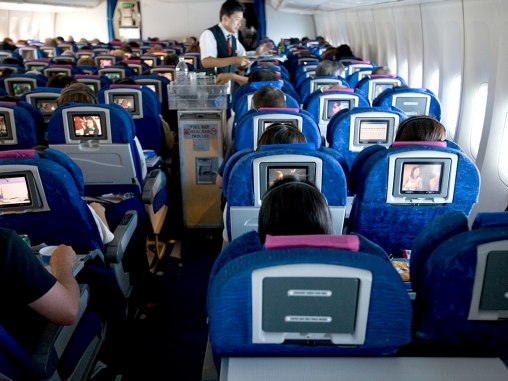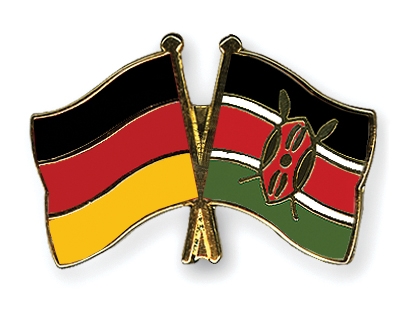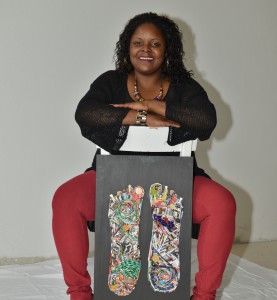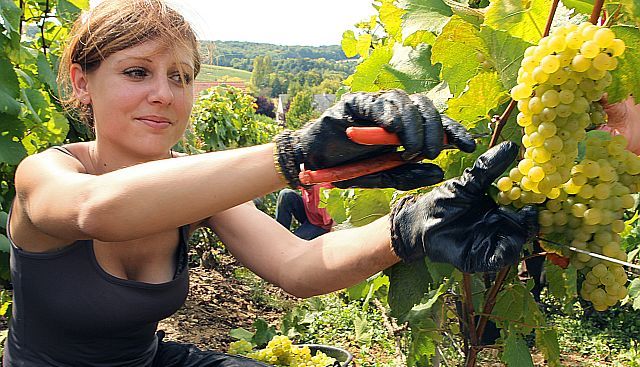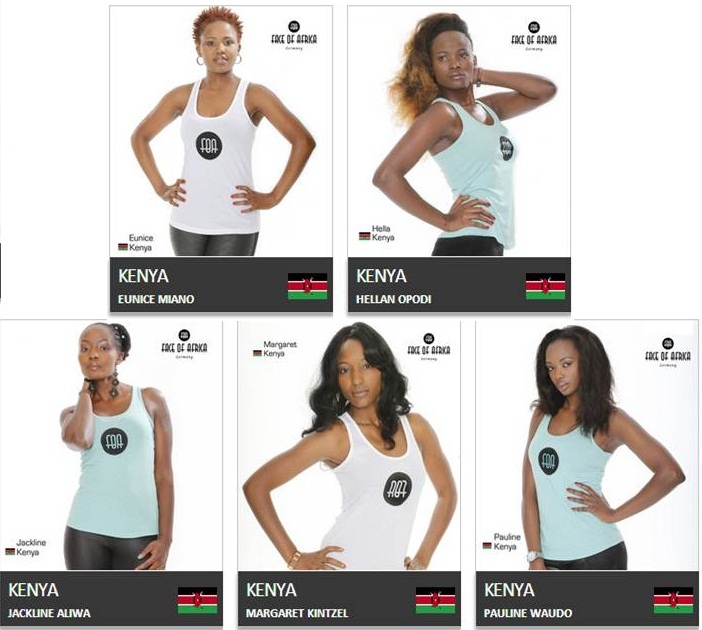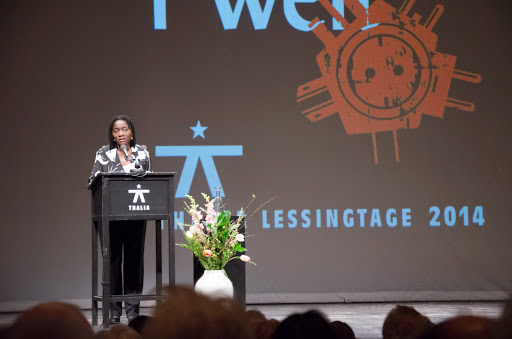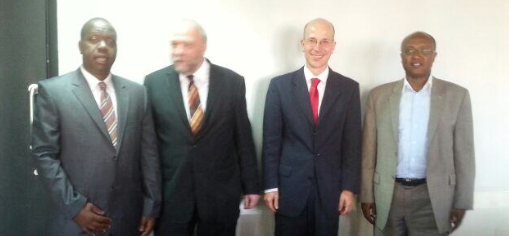By Okechukwu Ofili.
I love my Mum and you should too, but no matter how much you love her, never follow her to an international airport. Especially…when she is flying back to Nigeria from Obodo Oyibo (the home of the foreigners). If you do, you are almost guaranteed to become a weight connoisseur, slang for a person that makes heavy luggages (clearly above the weight limit) lighter by packing and unpacking and shifting several contents of the luggage until either it is below the weight limit or the onlooking airport officials take pity on you are frustrated with your mess and let you through with an extra kilogram or 2.
This happens every time we go to any airport with the exception of the Muritala Mohmmaed Airport for obvious reasons.
We have even tried weighing the luggage at home before departing. But to no avail, my mum simply ignores it. Somehow she expects the luggage to miracoulously reduce in weight over the 30 minute drive to the airport. But for years that has never happened…the luggage is still over weight. And when the attendants tells her the obvious, she turns to us and says this people are so wicked…its not wickedness I try to say, but my thoughts never transform into words as I am forced to drag yet another piece of luggage off the weight scale to be re-arranged and re-weighed.
My mum once carried a luggage as tall as a full sized midget and tried to convince the airline personnel that it was hand luggage. It must have been hand luggage for giants! But somehow she was able to get it on the plane! But that was nothing compared her mirror stunt in 1995. It all started in a store in Houston, my mum saw this mirror and immediately decided that it was the most beautiful thing she has ever set her eyes on (obviously she was looking at herself!).
She was determined that it (the mirror) was going to go to Nigeria with her. How she pulled this off could only be descried as the stuff of legends, she carried the mirror as wide as a large picture frame as hand luggage, through the Houston International Airport and the Amsterdam International Airport. In both scenario’s she was able to convince herself and the airport officials surprisingly that her large mirror was hand luggage. They believed it, either out of frustration or illusionalism[sic]. To this day, the mirror sits on our living room wall and sometimes I want to go up to the wall and say “mirror mirror on the wall, do you know the shit we went through to get you up that wall?” But I am sure the mirror would be quiet.
Sadly her situation is non peculiar. In Nigeria we try and carry everything from overseas to Nigeria…car parts, perfume, alcohol, accent…everything. Just enter economy class of the average Nigerian bound flight and you would understand what I mean. There you will find the largest hand luggages ever made…and if you dare arrive late…you are almost guaranteed not to have any space for your small laptop bag.
We are so notorious that we end up facing discrimination by the airlines. Once we start heading to Nigeria, the air-hostess attitude changes. The aggression comes out and the airport staff discriminate against Nigerian hand luggages, small or big. But why? How did we get here?
In 1994 I was perched on the top bunk of one of many dormitory rooms at my secondary school, when I was woken by the sound of laughter from underneath my bunk bed. To see what all the hoopla was about, I turned my head but gently so as not to arouse anyone to my hidden presence. From the top of the bed I could see 3 seniors a set above me and one junior a set below me in intense engagement.
The junior was standing with his face down, and all I heard was “made in Aba,” “made in aba,” “that’s how your people are always spoiling market.” To this day I don’t know why I remember this incident. Why it has never left my memory, but maybe I do and I am denial. Because I remember myself in JSS 2 at the age of 12 thinking to myself, “but what is wrong with made in Aba?”
But I never said a word. A junior standing up against 3 seniors to protect another junior in a set lower than him had never happened in the history of Nigerian boarding schools, and if it did that junior is probably still missing. So I kept my mouth shut and watched the 11 year old, face down, quiet and sad as he was mocked about his slippers. Which were an apparent knock off version of the Kito slippers that had rained in the 1990’s. Kito’s? A rubber amalgamation of gum and more rubber that created a slipper with a sole so thick, it made a short man think he was Michael Jordan. Ironically Kito’s were not the greatest quality products out there. But somehow the junior appeared to be wearing a knock off version of the Kito’s. So the seniors continued, joking and mocking as they chanted: “made in aba,” “made in aba.” And the poor junior just looked down sad, wondering why he was being mocked…
So where exactly is Aba? What are they popular for and how did “made in Aba” become grounds for insults.
But before I answer that, let’s go back to my previous question in the last chapter: Why are Nigerians not producing patents or producing as much stuff as their potential should?
 Looking beyond the obvious…the poor state of our schools and other socio-economic factors I think it is because we suffer from Comparison Block. Comparison block is a term I coined up to describe when a group of people look down upon an evolving idea because it looks shabby compared to an already existing and well developed predecessor. It is when a pair of canvas made by a local vendor in one village in Nigeria is compared to a Micheal Jordan shoe made in
Looking beyond the obvious…the poor state of our schools and other socio-economic factors I think it is because we suffer from Comparison Block. Comparison block is a term I coined up to describe when a group of people look down upon an evolving idea because it looks shabby compared to an already existing and well developed predecessor. It is when a pair of canvas made by a local vendor in one village in Nigeria is compared to a Micheal Jordan shoe made in America China. Which brings me to another “made in,” the “made in China” the “Aba” of the world in the 1990′s. Anything bootleg, from Jordan’s to Tommy Hilfiger shirts and even Chinese movies…was considered “made in China.” It was like an insult…if you wore a shirt that had made in China on it, you would be looked at with disdain. Fast forward 20+ years and now you have high quality products from iphones to air jordans made in China, branded in America and consumed devoured in Africa.
How did China get here?
Well for starters they rarely compared their products to the West. They made their shoes and even though it was a knock off, they still produced it and their people oblivious to the Western need to be cool could not be bothered with the knock off nature of the shoes so they bought them and rocked them. Not to mention that the large Chinese population combined with import restrictions meant that there was practically a large demand for products, boot leg or not people would buy. And because of this sustained demand almost inelastic demand, supply had no option but to keep on increasing and when supply continues producing, something funny happens. It is called evolution. The Chinese got better … better at what they did. Soon the West was flying to China to see if they could get their clothes done there, and soon they wanted their electronics made there and before you knew it they wanted their Nuclear weapons made there China became the epicenter of manufacturing for the world!
Let’s bring it back to Nigeria…take a look at Nollywood, the Nigerian version of Hollywood. When they started out the movies were quite frankly in Western comparison terms poor. The camera angles were weak, sound effects out of sync and acting that seemed like well “acting.” But over time, Nollywood evolved. More and more producers and directors developed and the quality of acting improved. That is not to say there are not the occasional bad movies here and there, but Nollywood is a testament of what can happen when Nigerian supports a quote and quote inferior product, by creating demand and forcing supply which ends up evolving and improving.
We need to take that same mentality and apply to our everyday products, from computers to clothing. We might not get it right the first time or the second time, but soon like Nollywood movies the products will improve.
And remember Biafra? And the refinery. Turns out that those refineries in some shape or form are being produced in Nigeria today. In the Niger Delta, but they are called illegal refineries, like the made in aba kito knock offs they are looked down upon. To us, to our government and outsiders our definition of a refinery is the one built by a foreign company that spans thousands of acres with an expat several expats running it. No one has said, hmmmm…just maybe this smaller so called illegal refineries could evolve to be something better. Maybe they could be standardized just like Biafra did during the war, and maybe just maybe the Nigeria way of creating a refinery might not be the big gigantic one, but clusters of smaller refineries scattered around the planes of the Delta. Imagine…we could even get a patent for compact refineries and potentially end our patent drought.
But we won’t because we constantly get sidelined by the constant urge to immediately compare all our products to the west, not realizing that like everything we need time to evolve. Time to evolve our own ideas, our own products and our own thing. And if we do so just that… then maybe we could start creating our very own patents. That’s why Biafra was one of the most creative times in Nigerian history, they (the Biafrans) had no time to depend on western missiles or refineries, they had no one to mockingly say why are you carrying a made in Biafra gun. Because reality is that if you were being shot at you would grab any gun rather than die defenseless cause you were trying to look cool with a non-existent made in America gun. The Biafran’s did not even know the terminology “made in,” they just created their products to survive. And because of that they made magic happen.
We too can make magic, and that magic could be that one day Americans and other foreigners will stuff their luggages full of Nigerian products as they try frantically beg the attendant’s at Muritala Mohmmed Airport to ignore the little 2kg, because they can’t get enough of <insert that magical Nigerian product>. They weigh and re-weigh, until one attendant finally yells out in frustration.
By Okechukwu Ofili. Follow him on twitter, Facebook or subscribe to his blog for more honest talk and as @ofilispeaks on instagram for more sketches!

